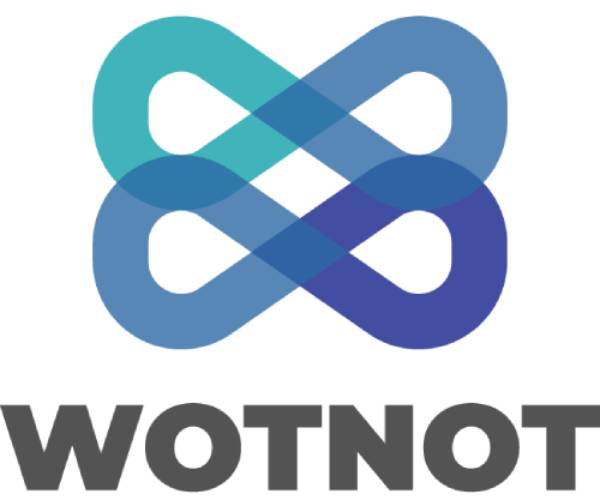TOP ARTIFICIAL INTELLIGENCE (AI) SOFTWARES AND TOOLS








Choose Other Top Software Providers
TOP ARTIFICIAL INTELLIGENCE (AI) SOFTWARES AND TOOLS resources
Latest Posts
Deploy AI in B2B Sales
B2B CIOs must introduce AI to the sales organization to free sales reps from administrative tasks and augment their decisions.
Artificial intelligence (AI) has become an integral part of life. Devices are full of smart helpers that offer suggestions on when to wake up, go to sleep or take a nap. They recommend new artists for playlists or a movie for the evening. They remind users to be active, stay hydrated and eat healthy. AI technology has become a companion for our daily life with one notable exception: The B2B sales organization.
Can Artificial Intelligence Help Improve B2B Sales?
Artificial intelligence has great potential in marketing, especially in the domain of B2B sales. Here's how you can use AI to your advantage.
Over the years businesses have employed different technologies that allow them to reach to exponential possibilities. Among these emerging technologies is artificial intelligence (AI). As AI has great potential in marketing, particularly in the domain of B2B sales, it can revolutionize the way business interact with one another about services and products.
Best 4 Uses of Artificial Intelligence in a B2B Business
There’s a lot of attention on how AI, machine learning, and big data are at the top of technology trends which are transforming the way business is done, particularly in the B2C landscape.
It’s not surprising to see there’s more focus on AI in regards to B2C companies than B2B – after all, the consumer base is significantly larger.
Five Ways Artificial Intelligence is Transforming B2B Sales
Everybody knows ‘The Power of Now’, and that’s exactly why you should know and adopt AI. Artificial Intelligence is no more a theory of the future as it continues to have an unprecedented impact on businesses globally. In less than 10 years, B2B enterprises have begun to implement Artificial Intelligence (AI) to accelerate their growth and revenues. All the fears of humans losing their jobs to AI and machines may not be true after all, especially when you consider marketing and sales in under-billion dollar companies.
An Introduction to AI for B2B Marketers
In 2011, when IBM Watson won an exhibition match on Jeopardy against two of the show’s top champions, Paul Roetzer was fascinated. While he was impressed that a computer could beat two world-renowned Jeopardy champions, he was already thinking ahead.
As the CEO and founder of PR 20/20, a Cleveland-based digital marketing agency, Roetzer began to wonder about the potential of artificial intelligence (AI) in marketing. Thus began a journey that led him to found the Marketing AI Institute in 2016.
The Role of AI in B2B Marketing
B2B marketing is easy. All you need to do is find the perfect prospect at precisely the right time in their own educational process. Once you do that, just get exactly the right information into their hands that shows how you’ve got the perfect solution to thoroughly address their pain points. Sit back and watch your business grow like a weed on steroids. Nothing to it.
But, if B2B marketing is so simple, why do some organizations seem to succeed at it while others struggle? Turns out, identifying the perfect prospect at precisely the right time is similar to, but a lot harder than spotting a red umbrella in a sea of black ones. Prospects worth pursuing often can only be identified by subtle cues, patterns of behavior that can only be differentiated by careful analysis of just the right data.
4 Use Cases of AI for B2B Marketers
AI has evolved significantly since the days of Siri’s languid chats with John Malkovich. It not only eases the burden of compiling and parsing information but is beginning to offer new and unique insights. In other words, the days of AI being primarily a buzzword are coming to an end.
Marketers, in particular, are finding that AI is more applicable to their business challenges, with user-friendly, pragmatic products seeing successful adoption. And, as AI and machine learning marketing capabilities are giving B2B marketers more lift and scale across their programs, this exciting tech is poised to become standard best practice as fast as it becomes available.
How can Artificial Intelligence help scale your B2B Sales and Marketing?
Technological advancements have always helped businesses by creating new opportunities for reaching customers. One of greatest technologies of our time is Artificial Intelligence (AI) which is creating quite the buzz in the digital space. Given its potential for storytelling and marketing, Artificial Intelligence in B2B sales and marketing is here to transform the way people interact with brands, information and services.
10 Artificial Intelligence Tools Transforming the B2B Sales World
“AI is destined to be the perfect tool to fuel organizations’ sales efforts and power sales teams with genuinely intelligent tools to more effectively organize their work and sell more.”
– Jill Rowley, Social Selling Evangelist and Startup Advisor*
This quote is from an article Jill wrote on LinkedIn titled “#AI Will Reinvent Sales…and Sales Professionals” and sums up nicely what we think about AI in sales too. Technology is fully embedded in today’s sales organizations and it goes beyond just a database of customer or prospect information. Sales software does everything from schedule meetings and write emails to identifying sales behaviors that close more deals. That’s how artificial intelligence (AI) is changing the sales landscape today.
5 Best Artificial Intelligence Tools
The most trending topic of technology 2017 is undoubtedly Artificial Intelligence. Big companies like Facebook, Amazon, Google, Microsoft are investing money in this field. The most shocking thing is, smartphones are also trying to incline towards artificial intelligence. They are working hard in the research of this field. People nowadays are finding ways to make their lives easy and comfortable. AI is the only way to make this happen. Here are 5 tools for building AI algorithms.
Importance Of Artificial Intelligence From Career Point Of View
Artificial Intelligence, simply termed as AI, as the name suggests, is the intelligence exhibited by the machines. By acquiring intelligence, although artificial, the machines will become capable of working and reacting like humans. Today, the artificial intelligence that exists is termed as narrow or weak AI.
5 Important Artificial Intelligence Predictions (For 2019) Everyone Should Read
Artificial Intelligence – specifically machine learning and deep learning – was everywhere in 2018 and don’t expect the hype to die down over the next 12 months.
The hype will die eventually of course, and AI will become another consistent thread in the tapestry of our lives, just like the internet, electricity, and combustion did in days of yore.
What Is The Importance Of Artificial Intelligence (AI)
It might be easier to state what part of our modern society artificial intelligence (AI) hasn’t touched to show how important it is to our daily lives, business operations and society. Intelligence machines are influencing nearly every facet of our lives to help improve efficiencies and augment our human capabilities. AI is so intertwined in all that we do; it's hard to imagine living life without it.
What is the Importance of Artificial Intelligence in Everyday Life?
Artificial Intelligence is the machines which are designed and programmed in such a manner that they and think and act like a human.
Artificial Intelligence becomes the important part of our daily life. Our life is changed by AI because this technology is used in a wide area of day to day services.
These technologies reduce human effort. Now in many industries, people are using this technology to develop machine slaves to perform the different activity. Using the machine for the work speed up your process of doing work and give you an accurate result.
The Importance of Artificial Intelligence in this advanced world
We are a privileged generation to live in this era full of technological advancements. Gone are the days when almost everything was done manually, and now we live in the time where a lot of work is taken over by machines, software, and various automatic processes. In this regard, artificial intelligence has a special place in all the advancement made today. Artificial intelligence or AI is nothing but the science of computers and machines developing intelligence like humans. In this technology, the machines are able to do some of the simple to complex stuff that humans need to do on a regular basis. As the AI systems are used on a day to day basis in our daily life, it is not wrong to say that our lives have also become advanced with the use of this technology.
















